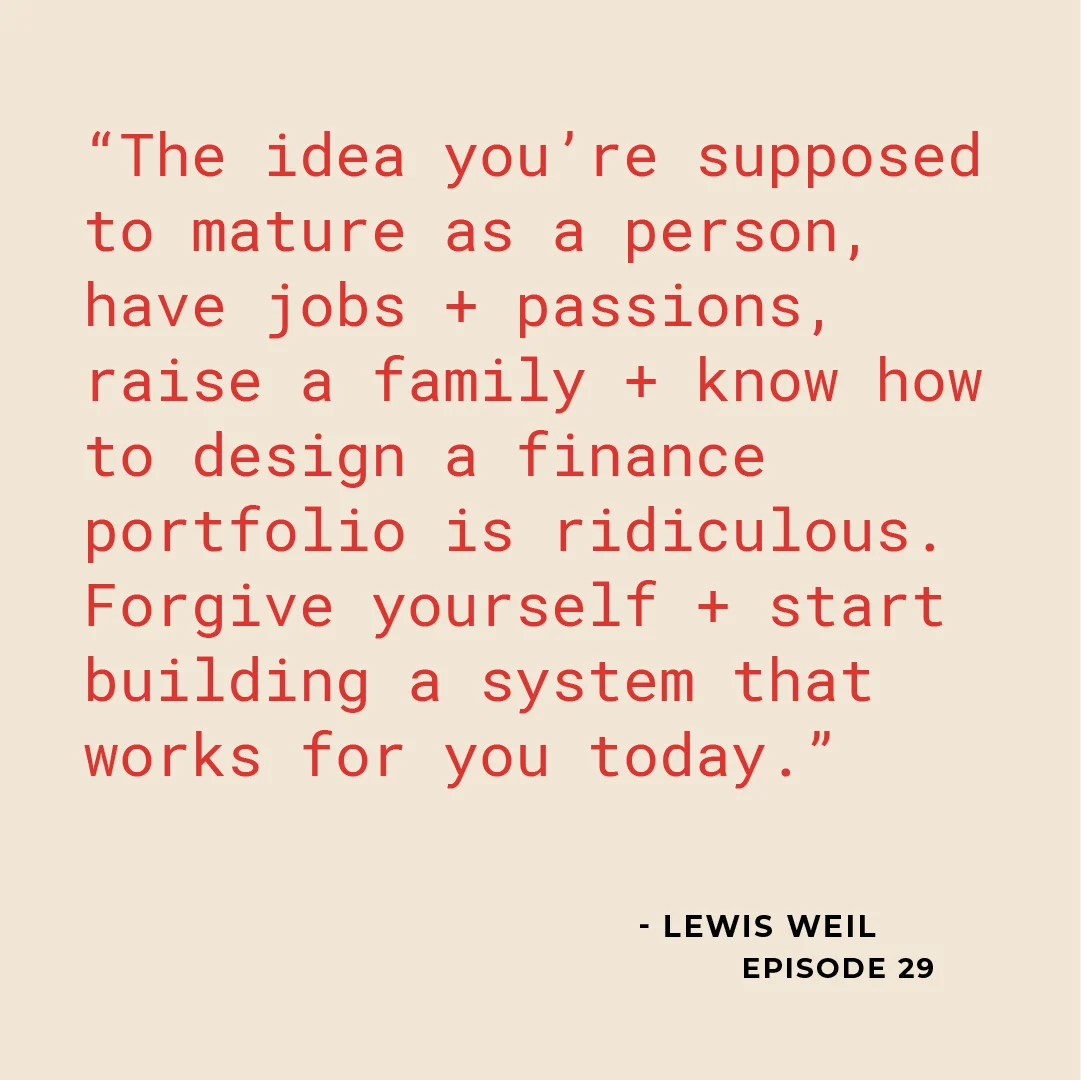Lewis Weil on Making Money Work for You
- 21 June 2019
- ByShannon Byrne
- 5 min read

On Episode 29 of The Process podcast, host Shannon Byrne chatted with Lewis Weil, the founder of Money Positive, a company focused on helping creatives understand and take control of their financial planning.
In this episode of The Process, we talked about creating a realistic personal finance system that works for you, how to create a budget that’s not painful, Lewis’ career journey, delegating some of life’s tasks, and more.
Lewis built Money Positive to meet people where they’re at. He doesn’t judge or shame them for buying a coffee every day or spending money on eating out. A biologist for over a decade, he was a self-proclaimed money nerd on the side. When he realized some of the smartest people he knew were clueless when it came to money management, he started dabbling with financial planning. As he learned the industry wasn’t built to help most people, he started his own company to do just that. What started as a side project turned into a full-time career very quickly.

He says the U.S. doesn’t really have a financial system, we just have products we’re supposed to know how to use. “The idea you’re supposed to mature as a person, have jobs and passions, raise a family, and know how to design a finance portfolio is ridiculous to me. Forgive yourself and start building a financial system that works for you and starting today,” he says.
He was super encouraging about not feeling bad about past decisions. All we can do is start where we’re at and work with what we have. He’s helping people navigate the world of compounding while being linear creatures who are focused on making everyday decisions. He works with clients to create a budget broken down into three big categories:
Obligations: money you have to spend
Financial security: getting rid of debt and building an emergency fund
Investment: money for retirement
Lewis has his clients focus primarily on how they spend their discretionary income - any time they pay for something out in the world (coffee, food, art supplies, beer, and so on). He says, “You don’t need to be perfect, just stick to it the best you can.” Everything else is automated: debt payments, investments, bills.
Essentially, he works with people to create a simplified system that provides a clear view of how they’re spending money and why. He also suggests having separate accounts for your personal spending and business spending.
He says most people don’t know what their take-home income is - so he helps people identify that and where they need to put their money first. For example, what debt has the highest interest rate or will be the quickest to pay off. Knowing that is an important step to financial freedom.
For more on how Lewis structures a budget, check out his Guide to Financial Planning for Artists on The Creative Independent. It’s a helpful resource I often revisit and send to people.
We covered a lot of territory on finances, planning, and being a small business. Lewis says if you’re going to be a business, it has to be something you really want.
“It has to be something you’re passionate about. Something you can’t help but to do,” he says. “There is absolutely no shame in realizing that something isn’t for you and having a regular job and doing what you care about on the side. If you do stuff on the side, that’s fine. If you do realize this is something you can’t not do, you need to have your books in order before we work on your personal finances.”
My main takeaway from our conversation is that we all need to stop casting blame on ourselves for whatever we did yesterday and just do the best we can today. And also, know exactly how much money is coming in and going out the door.
Check out my full conversation with Lewis below or read the show notes. You can also listen on iTunes, Spotify, or wherever you get your podcasts.
21 June 2019
Words by:Shannon Byrne
- Share